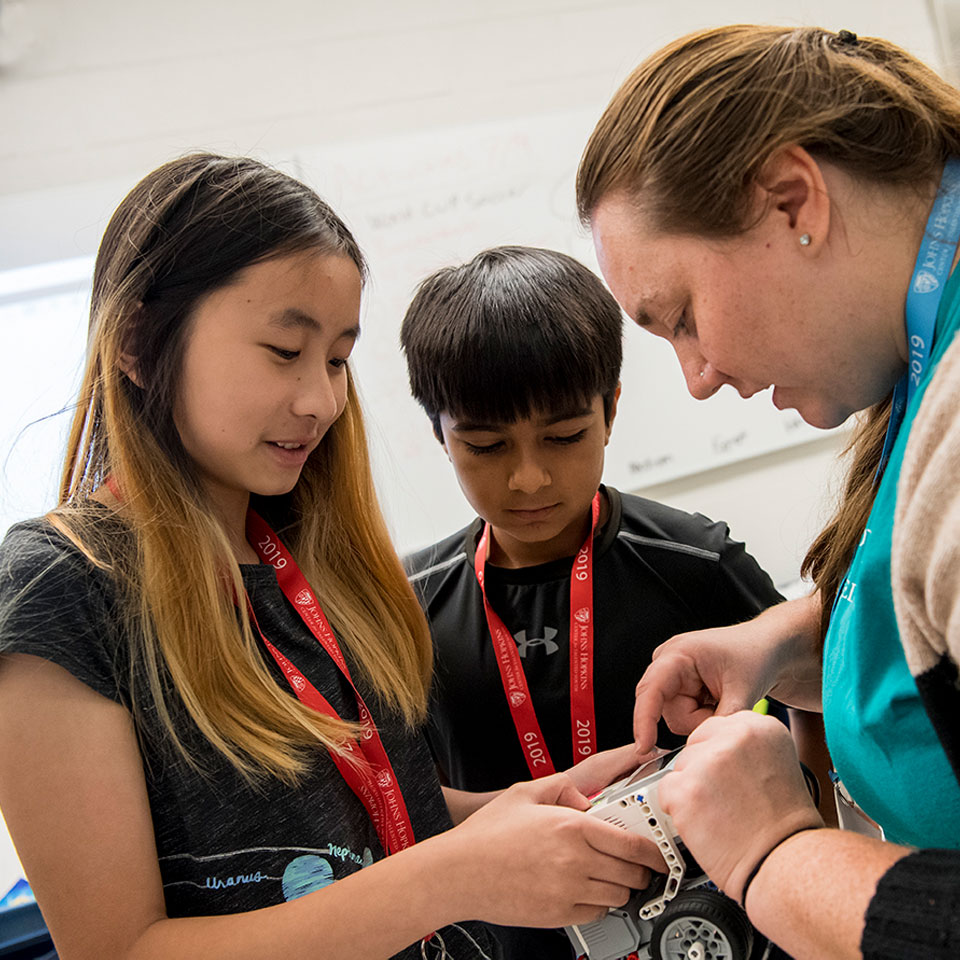Breadcrumbs
Epidemiology
- Grades 9-12
- CTY-Level
-
Residential
- Science and Engineering
From Covid-19 to HIV to malaria, infectious diseases remain one of the world’s leading causes of death. How do scientists compile and use statistics to combat outbreaks? In this course, you and your classmates will investigate the science and politics of disease, from the roles epidemiologists play in unlocking pandemics’ points of origin to exploring how policymakers address AIDS and the avian flu. You’ll gain insight into the cause and spread of global diseases, the role of scientists in identifying, controlling, and/or preventing them, and the political and ethical implications. You’ll build a foundation in cell, bacterial, and viral biology, evolutionary biology, and pathogenic resistance to drugs, and learn about the tools scientists use—from statistical analysis to computer modeling to biomedical research—and leave the course with a greater understanding of how epidemiologists combat diseases and prepare for future outbreaks. This science-based course also explores the roles the arts and media play in issues of global health, human rights, and stigma associated with infectious disease.
Typical Class Size: 16-18
This course is
ungraded.
Summer Dates & Locations
Session One

Session Two

Testing and Prerequisites
| Math | Verbal | |
|---|---|---|
| Required Level | CTY-Level | or CTY-Level |
Students must achieve qualifying scores on an advanced assessment to be eligible for CTY programs. If you don’t have qualifying scores, you have several different testing options. We’ll help you find the right option for your situation.
Sign up for Testing Learn MoreCourse Prerequisites
Epidemiology requires:1 prerequisite
CTY’s Fast-Paced High School Biology or at least a B in first-year high school biology
Cost and Financial Aid
Tuition
- Varies
Application fee
- Nonrefundable Application Fee - $55 (Waived for financial aid applicants)
- Nonrefundable International Fee - $250 (outside US only)
We have concluded our financial aid application review process for 2025 On-Campus Programs. We encourage those who may need assistance in the future to apply for aid as early as possible. We are committed to serving all talented youth regardless of financial circumstances. Financial assistance is available based on need.
Course Materials
Students should bring basic school supplies like pens, notebooks, and folders to their summer program. You will be notified of any additional items needed before the course begins. All other materials will be provided by CTY.
Sample Reading
These titles have been featured in past sessions of the course, and may be included this summer. CTY provides students with all texts; no purchase is required.
- Mountains Beyond Mountains, Tracy Kidder
- The Coming Plague, Laurie Garrett
- The Medical Detectives, Berton Roueché
Technical Requirements
Students must bring a tablet, laptop computer, or Chromebook for use during the session. A smartphone will not be sufficient.
About Science and Engineering at CTY
Explore space and our planet
In our Introduction to Astronomy course, we’ll visit a nearby observatory or planetarium, see what the cosmos looks like through various spectra, and immerse ourselves in the science and technology that bring the universe closer to home. In Marine Ecology, we’ll visit local wetlands and tidepools, observe flora and fauna, collect water samples and analyze them for clues about their health and humans’ impact. And in The Global Environment, we will explore the human impact on our environment and generate proposals for addressing climate change.
Bond over chemistry
Our chemistry courses help you see the world differently, starting at the atomic level. The Edible World gives budding chefs and science lovers a glimpse into the chemical reactions that happen when we make food, and the chemical makeup of meals and treats we eat every day. In our Crystals and Polymers course, we’ll synthesize slime, grow rock candy, and isolate strawberry DNA to learn about the molecular structure of naturally occurring gems and human-produced plastics. In Chemistry in Society, we'll consider how the chemicals in products can both enhance and degrade the world around us; produce biodiesel in a lab to understand alternative fuels; and prepare aspirin to learn about the healing and toxic properties of pharmaceuticals.




